Let’s get this out of the way first: Moon director Duncan Jones is David Bowie’s son, formally named Zowie Bowie. Had his debut feature Moon been anything less than brilliant, the press would have pounced on his celebrity ancestry with acidic glee. Fortunately, this elegantly traditional slice of science fiction is a heartfelt movie that may lack originality but displays its influences with an intelligent reverence.
Sam Bell (Sam Rockwell) is near to completing a three-year contract on the moon, where he monitors equipment that extracts helium-3 from lunar soil to provide energy for earth. The sole human on Luna, his only companion is the Hal-inspired computer Gerty (the voice of Kevin Spacey), and his communication with his wife and daughter on Earth is restricted to recorded transmissions.
With just weeks of his term to go, Sam is struck by a series of hallucinations of a woman, the most disorientating of which causes him to crash one of the lunar rovers into an automated harvester and be knocked unconscious. He awakens in the base’s infirmary, where he is detained by Gerty and informed that a rescue crew is on the way to repair the damage and take him home. Disobeying orders, Sam fakes a meteor collision in order to force Gerty to let him leave the base, only to locate the crashed rover and within it an exact copy of himself.
To say any more would bring us into spoiler territory. Having little idea what Moon was about, I had expected a far weirder outcome than Jones actually offers; in fact, by contemporary science fiction standards Moon is refreshingly logical. Jones has identified his sources of inspiration as pre-Star Wars sci-fi movies such as Silent Running and 2001: A Space Odyssey and the spirit of these movies are evident not only in Moon’s stark, model-based effects but its study of the human soul. This is film about what it is to be human, as the duelling Sams struggle with their identity crises in different ways.
For all his evident talent, Sam Rockwell has been a difficult actor to pinpoint, and, starring roles in Choke and Confessions of a Dangerous Mind withstanding, as an actor he’s perhaps too idiosyncratic to ever truly rise to the leading man tier. But here he once again proves himself as the latest in a list of oddball actors (Willem Dafoe, Christopher Walken, Steve Buscemi) who rarely get the roles they deserve but always deliver when they do. I’d love to further praise the way in which Rockwell portrays two aspects of the same individual but, again, much like Dark City, Moon is a film that cannot be overly discussed with divulging its secrets. His disembodied co-star Kevin Spacey is powerfully sinister as the voice of Hal-lite robot Gerty; it’s hard to think of another actor whose vocals can be simultaneously soothing and intimidating.
Writing this review a week after Moon was released, it’s sad to see that the film has yet to make much of an impact, presumably due to its ludicrously limited release. You may have to journey to see Moon, but it’s worth it. This is a movie about ideas, but not one which forsakes the human element for technological gadgetry or anthropomorphic cars thumping one another. That Jones’s intellectual approach to futuristic filmmaking is seen as “retro” is depressing commentary on the state of modern sci-fi indeed.
9/10
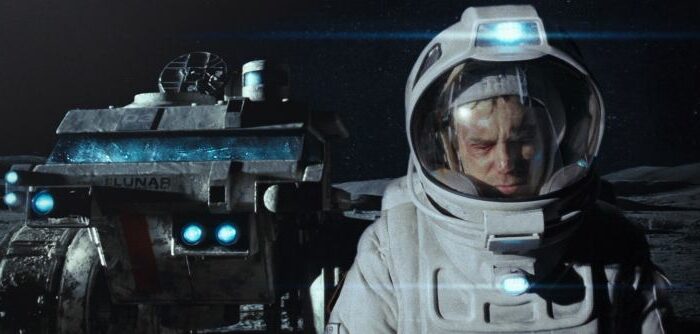
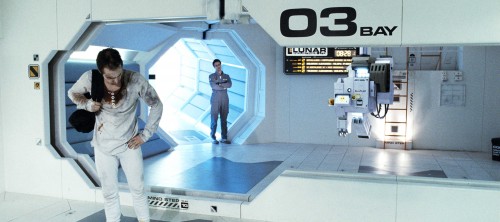
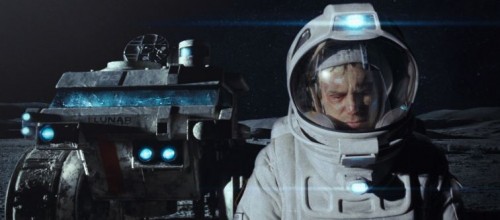
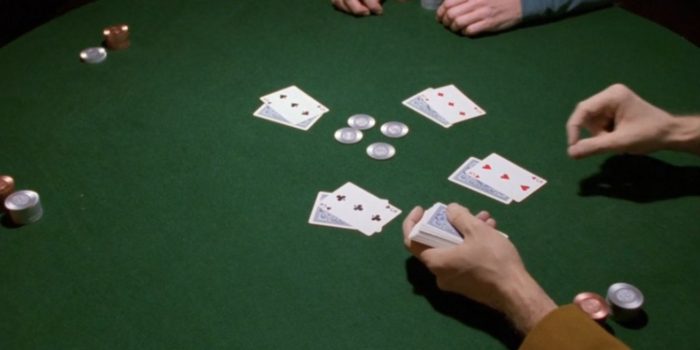




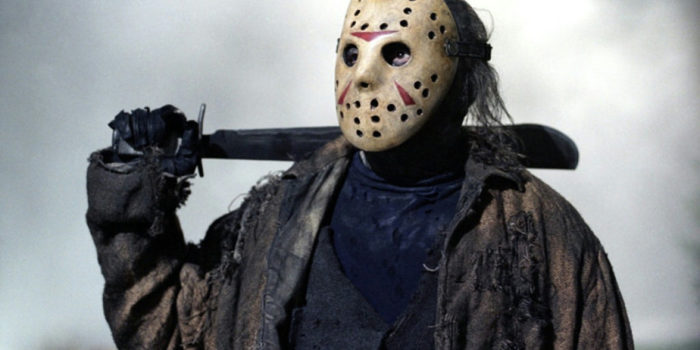


Leave a Reply